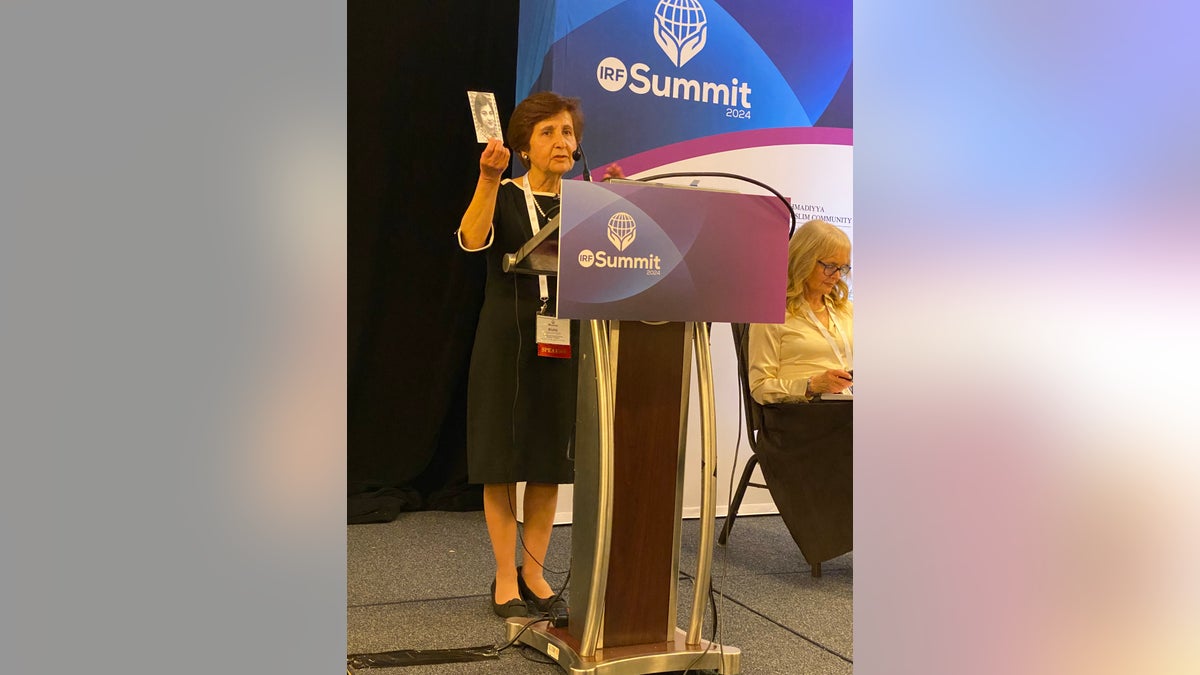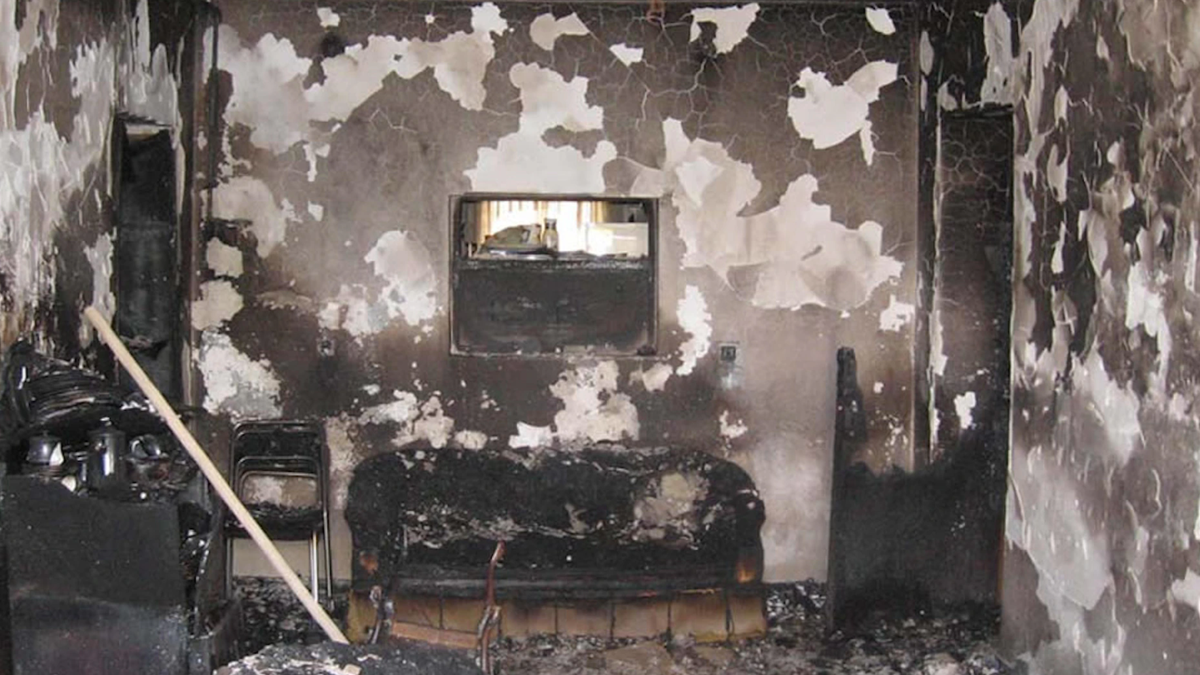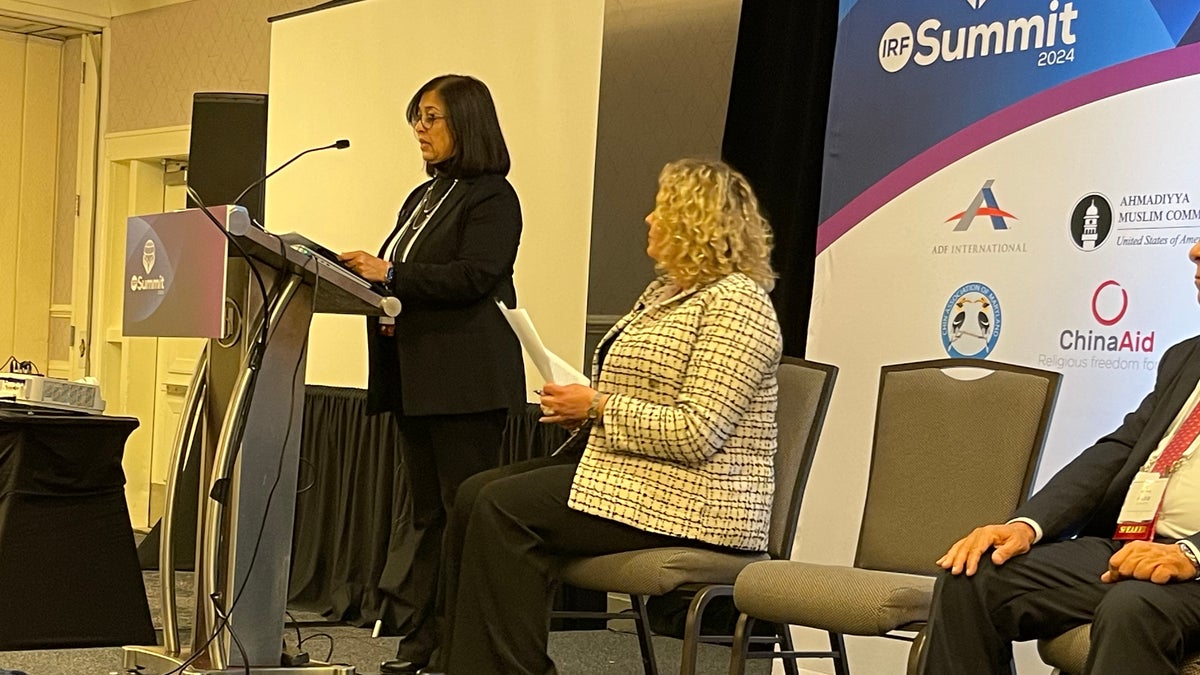Muslim scholar Dr. Qanta Ahmed: 'I have very little confidence' in the Biden admin to help Iranian women
Independent Women's Forum fellow and Muslim scholar Dr. Qanta Ahmed weighs in on the Biden administration's ties to Saudi Arabia and women's fight for freedom in the face of radical Islam.
Three Iranian women are spreading awareness at the International Religious Freedom (IRF) Summit on their shared prisoner-of-conscience experiences and empowering others to take action.
The IRF Summit is bringing together global victims and advocates by stressing the tragedies of religious persecution.

Ruhi Jahanpour speaking at the International Religious Freedom Summit 2024.
Countries of Particular Concern by the State Department have long listed Iran as having severe violations such as torture, prolonged detention without charges, forced disappearance, and/or other flagrant denial of life, liberty or security of persons.
Mitra Aliabouzar came to the United States in 2013 after being banned from studying, having been imprisoned for student activism. She says there needs to be action among nations to combat the Islamic regime in Iran.
She told Fox News Digital the "Islamic regime in Iran, it's homicidal. They enjoy killing, it’s in their DNA, but they are not suicidal. They want to stay in power, and they want to do that at any cost. So, if they have two options of releasing the political prisoners or staying in power, they would definitely choose that."
By the end of 2022, security forces killed more than 500 people, including at least 69 children, and arrested more than 19,000 protesters, including children, according to the nongovernmental organization Human Rights Activists News Agency.
During her studies in Iran, Aliabouzar protested the Iranian government’s repression of its own people. She was jailed and sentenced to three years imprisonment and finally released on bail after serving five months.
Ruhi Jahanpour, imprisoned in 1982-1983 for organizing Baha'i activities with her fellow youth, says she and others were steadfast in their faith even while prisoners of conscience.

Bahá’í homes and automobiles have been the target of arsonists, who often act with legal impunity. (The Bahá’í Faith)
The Baha’i community in Iran has long faced grave abuses. Over 1,000 Bahais' are currently at risk of imprisonment, according to the United Nations.
After the 1979 revolution, authorities in Iran executed or forcibly disappeared hundreds of Bahais, including their community leaders. Thousands more lost their jobs or were forced to leave their homes or their country.
"One of the questions that [the Iranian regime] have repeatedly, repeatedly asked us in prison was if you are Baha'i deny your faith… and they make every effort to make women deny their faith, including torturing them," shared Jahanpour.
Iran’s government considers the Baha’is part of a "deviant sect of Islam" because their faith recognizes divine revelation after the Prophet Mohammed, whom Islam considers the final revelation from God or "seal of the prophets." The government severely restricts Baha’is right to education, including prohibiting Baha’i students from registering at universities and expelling them if their identities are discovered.
US SANCTIONS IRANIAN OFFICIALS OVER WOMEN'S RIGHTS ABUSES
A common torture is "bastinado," which is a method of inflicting pain and humiliation by administering a beating on the soles of a person's bare feet.
Minoo Anvari, whose father was executed in for being a Baha'i in the early days of the revolution, was arrested herself in 1982 with 30 other Baha’is. She went through torture in the regime's attempt to have her recant her faith.

Minoo Anvari speaks at the International Religious Freedom Summit 2024.
CLICK HERE TO GET THE FOX NEWS APP
Anvari hopes to draw attention at the summit to the tactics of individual violations by the regime in an effort to sway attention away to the atrocities instead of larger-scale attacks.
She said that "at this moment even someone’s home could be attacked right now, and Baha'is arrested… if it wasn’t for the pressure locally, nationally and internationally,"
"Baha’is abide by the law, and we don’t fight back with the resistance. This is a peaceful faith that is a unity. Baha’is are being quiet and executed," Anvari told Fox News Digital.






















